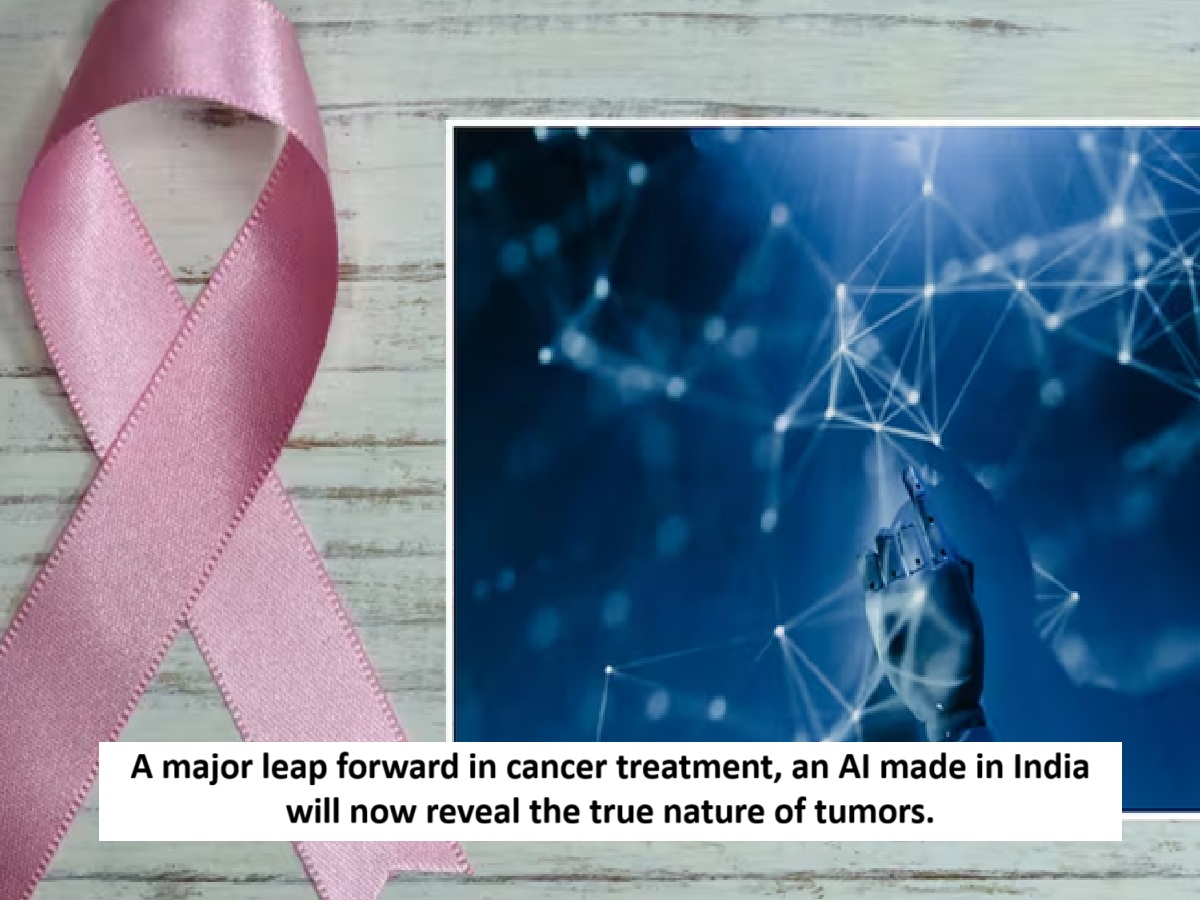
News Topical, Digital Desk : Indian scientists have made a major breakthrough in making cancer treatment more personalized. New research in India has developed an artificial intelligence (AI) framework that can study the complex activities occurring within cancer cells to identify the causes of tumor growth and the underlying dangerous processes active in a patient's body.
The old way of understanding cancer is no longer enough!
Until now, doctors have evaluated cancer based on its size, spread, and stage. However, two patients with the same stage often have different outcomes because these staging systems fail to recognize the molecular processes occurring within tumors. New AI technology addresses this gap. It understands cancer based on its molecular personality, not just its size or spread.
The first AI framework to read cancer signals
A team from the SN Bose National Centre for Basic Sciences and Ashoka University has developed an AI framework called OncoMark. This is the first technology that can accurately identify hallmarks of cancer, such as metastasis, immune system evasion, gene instability, and therapy resistance. The research team was led by Dr. Shubhashis Haldar and Dr. Debayan Gupta.
Research done on 14 types of cancer
Researchers fed AI data from 3.1 million cells taken from 14 types of cancer. The AI processed these data to create "pseudo-biopsies" that provided insights into the biological processes driving each tumor. This is the first time scientists have been able to observe, at the molecular level, how hallmark activities increase as cancer stages progress.
How was the result?
OncoMark achieved over 99% accuracy in internal testing. Its accuracy also exceeded 96% in five independent cohorts. After validation on 20,000 real patient samples, researchers have declared it widely usable.
These benefits will be derived from the new technology
- Identifying which hallmarks are active in a patient will allow for the selection of drugs or therapies that directly target the underlying cause of the cancer.
- Tumors that appear less dangerous but are rapidly growing internally will be identified. In such cases, early intervention can save the patient's life.
What will be the benefit?
Experts believe this system will also help patients whose cancer appears mild under traditional staging systems but is actually more aggressive. This research has been published in Communications Biology (Nature Publishing Group). This achievement by India is being considered a major step in cancer research, which could provide new directions for targeted therapy and personalized medicine in the future.
--Advertisement--

 Share
Share



